 Space News space history and artifacts articles Messages space history discussion forums Sightings worldwide astronaut appearances Resources selected space history documents |
If you have previously registered, but forgotten your password, click here.
| ||||||||
| Robert Pearlman | Scott Kelly today (Oct. 29) begins to set the new U.S. record for the single longest space mission. Eric Berger for Ars Technica asks, After 7 months, is Scott Kelly wondering what he's gotten into? After seven months in space, Michael Lopez-Alegria missed the little things about his home on Earth, which spun lazily just 250 miles below the International Space Station. Drinking a beer. Taking a shower. Lying down to go to sleep. Even so, up until the end of his then-record-setting spaceflight in 2007, Lopez-Alegria suffered the minor annoyances of living in space as the "price of admission" to the best room in the universe. | |||||||
| Robert Pearlman | President Obama recognized Scott Kelly's record today as part of his Veteran's Day address from Arlington National Cemetery: "Our veterans are moms and dads, they are teachers and doctors, engineers and entrepreneurs, social workers and community leaders. They are serving in state houses across the country, they are serving in Congress. You've got a proud veteran, retired Navy Captain Scott Kelly, commander of the International Space Station, who is up there right now, just became the American astronaut to serve the longest consecutive flight in space. Our veterans are already making America great every single day." | |||||||
| Robert Pearlman | collectSPACE 520 days and counting: Jeff Williams tops U.S. record for time in space 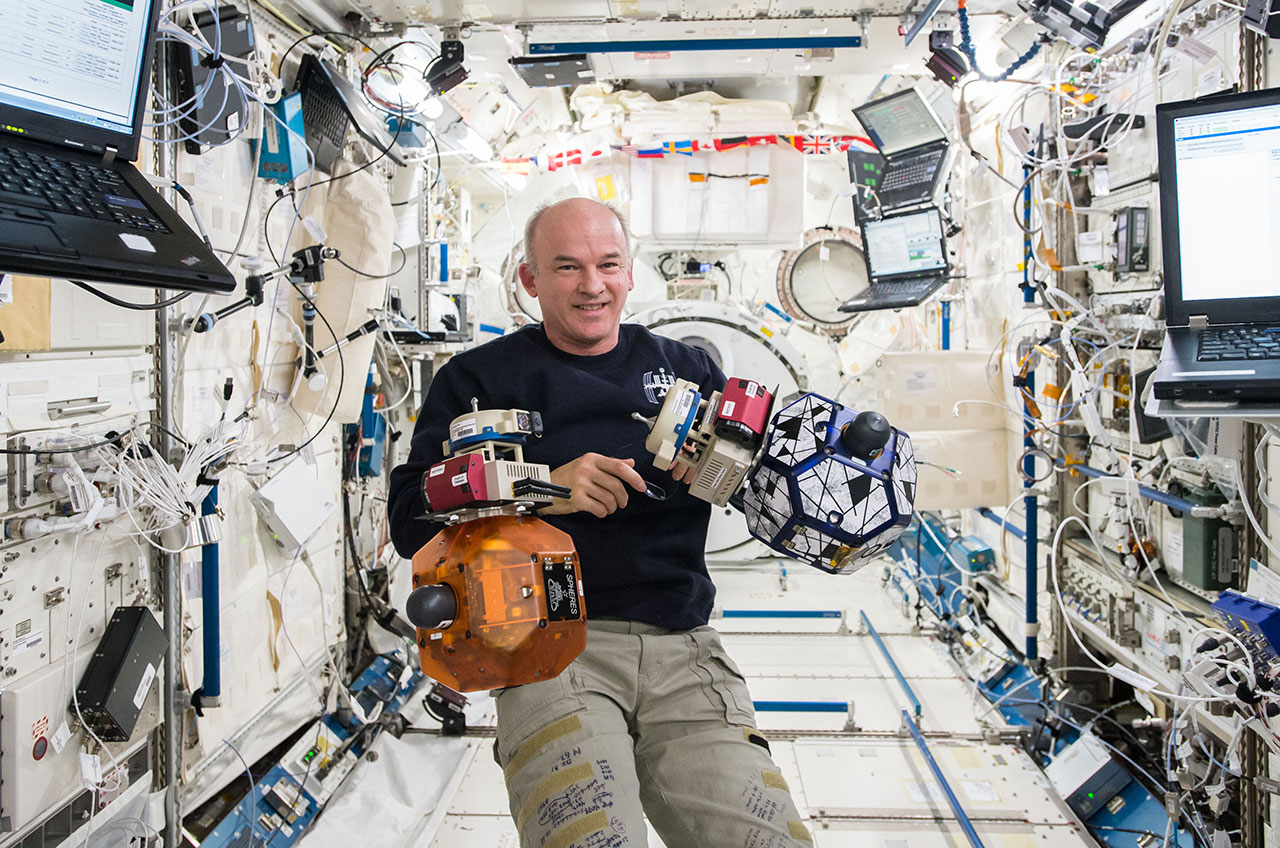 | |||||||
| Robert Pearlman | Scott Kelly visited Mission Control this morning (Aug. 24) to congratulate Jeff Williams on breaking his record: Scott Kelly: Hey, I wanted to congratulate you on passing me up here in total numbers of days in space. It is great to see another record broken, and especially by a Sardine. | |||||||
| issman1 | Tremendous achievement by Williams but it may well be surpassed by his 1996 classmate Peggy Whitson next year. | |||||||
| LM1 | These achievements are amazing and it is unbelievable that someone could remain in such a small space for so long without going "star-crazy." However, the astronauts who are breaking these records will probably not be among the crew chosen for the first Mars landing well in the future or even for an extended mission to the Moon also well in the future. But what we learn from these current adventurers will be enormously useful when training future astronauts for missions to the Moon and Mars. | |||||||
| Robert Pearlman | collectSPACE Peggy Whitson breaks US record for most time in space by an astronaut 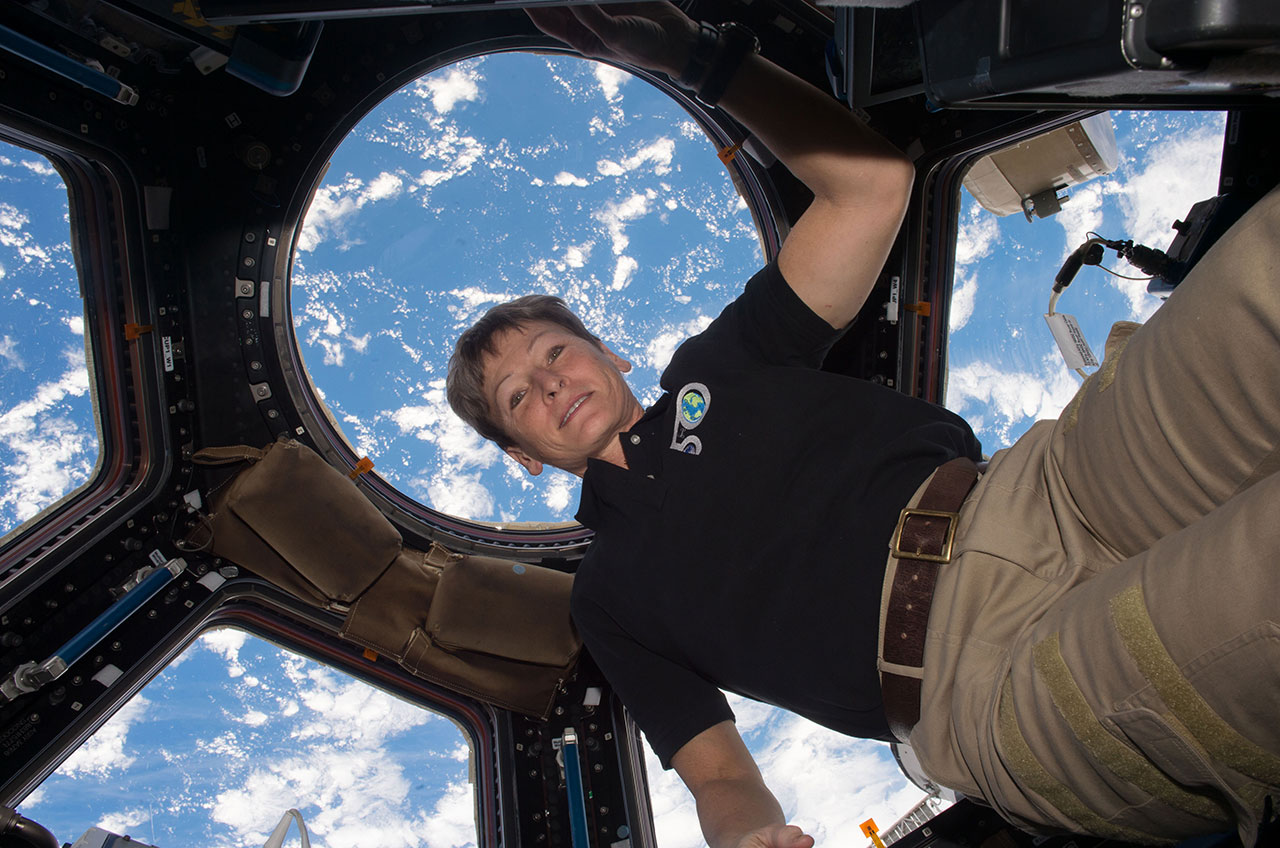 | |||||||
| randy | You GO girl! | |||||||
| Glint | The President "telephoned" Peggy Whitson aboard the ISS, saying "This is a very special day in the glorious history of American spaceflight," and "That's an incredible record to break," according to FoxNews.com. With Trump during the call was daughter Ivanka as well as astronaut Kathleen "Kate" Rubins (Soyuz MS-01, ISS 48/49). The account also mentioned the following: The president also asked Whitson about the research she is involved on the International Space Station, with the astronaut explaining that one project involves cleaning up urine to make it drinkable. "I am very glad to hear it, better you than me," Trump quipped. | |||||||
| Robert Pearlman | NASA update Mark Vande Hei hits 300 days in space, on way to break NASA record | |||||||
| Robert Pearlman | collectSPACE NASA astronaut Mark Vande Hei breaks record for longest US spaceflight 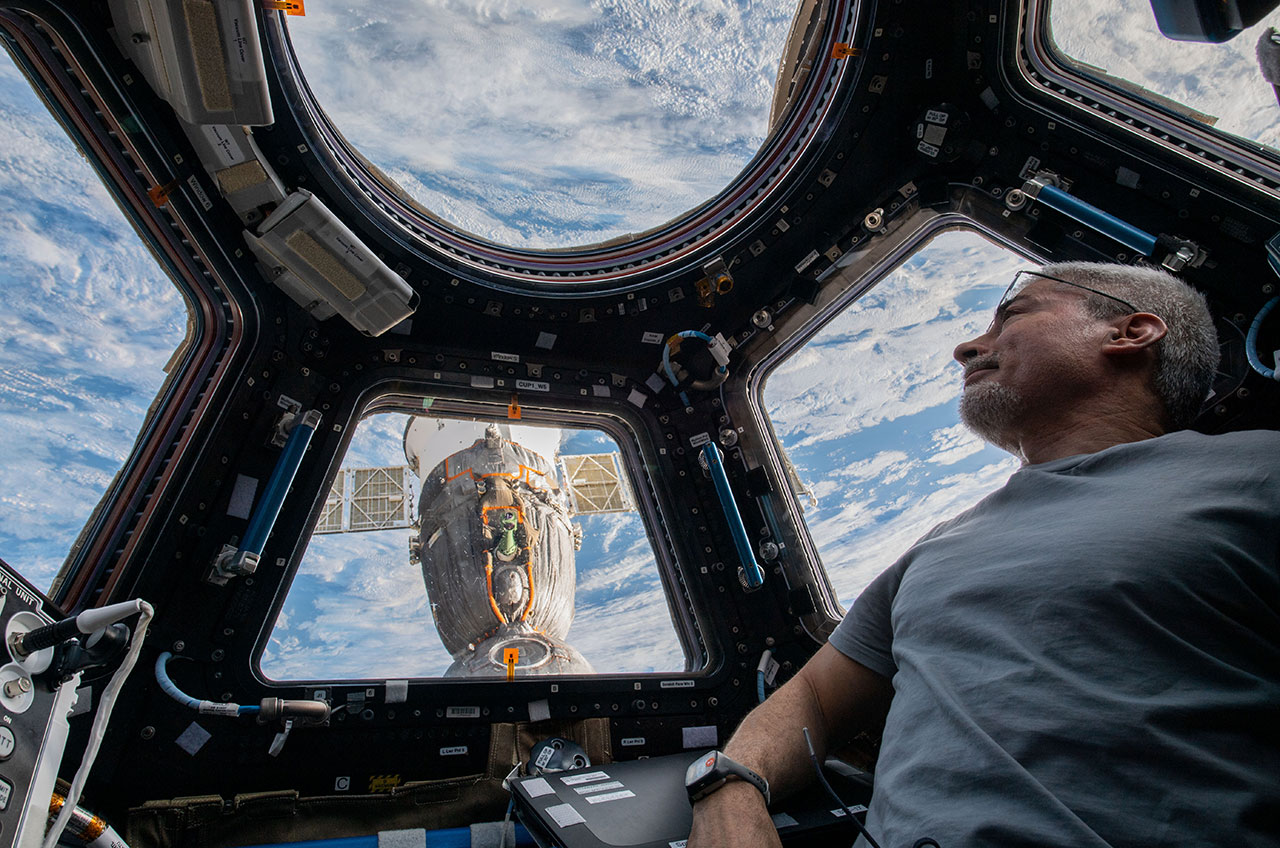 | |||||||
| Robert Pearlman | collectSPACE NASA astronaut Mark Vande Hei reflects on record 355 days in space 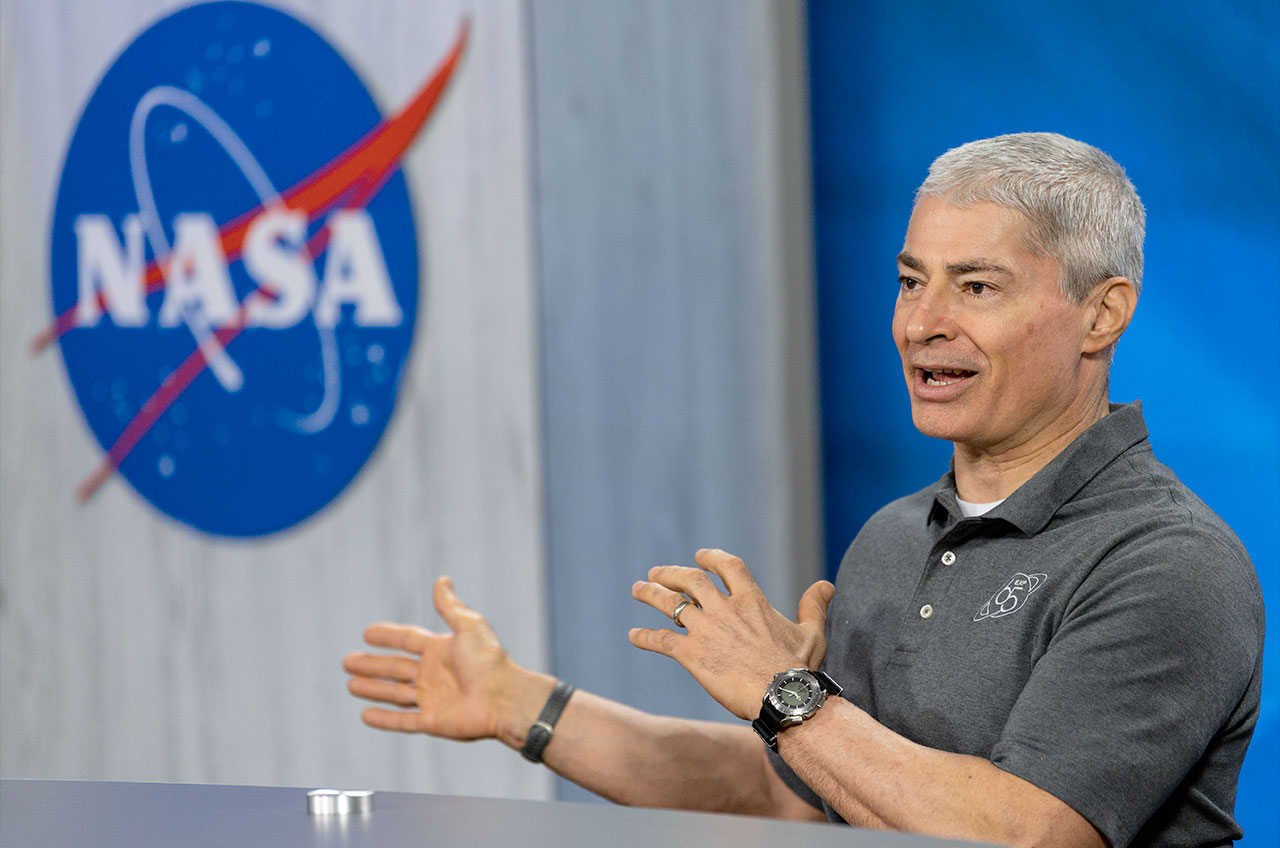 | |||||||
| Robert Pearlman | collectSPACE Astronaut Frank Rubio breaks US duration record on way to spending a year in space 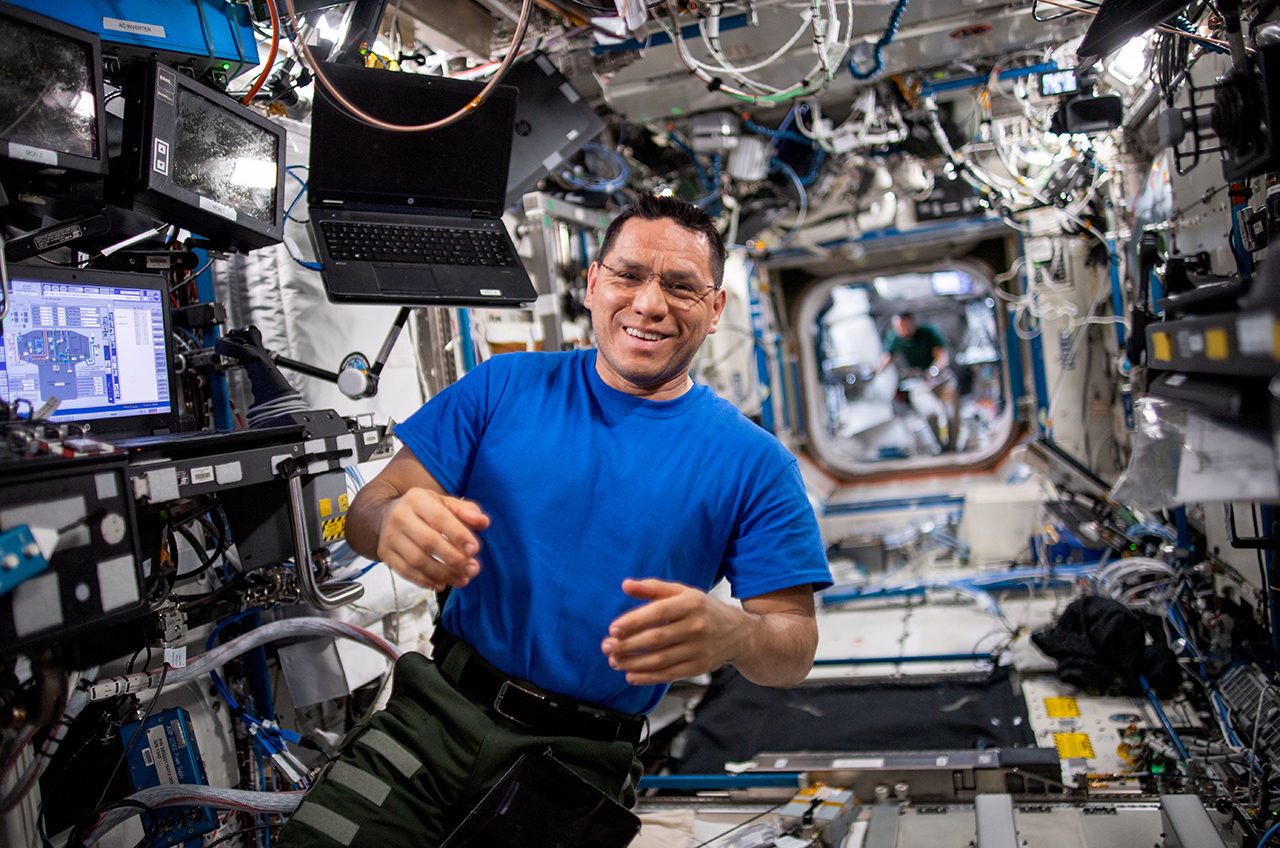 | |||||||
| LM-12 | ...one of only six people to spend a year in space
| |||||||
| Robert Pearlman | I had missed Sergey Avdeev. The article is now updated accordingly. Thank you. | |||||||
| Robert Pearlman | NASA video Aboard the International Space Station, Expedition 69 Flight Engineer Frank Rubio of NASA answered questions about life and work on the orbiting laboratory and discussed his record-breaking mission during an in-flight conversation recorded on Sept. 5 with NASA astronaut Mark Vande Hei who was in Mission Control at the Johnson Space Center. | |||||||
| LM-12 | Peggy Whitson has the record for most accumulated time in space (675 days) by a NASA astronaut. There are eight cosmonauts who have more accumulated time in space. Oleg Kononenko (now in orbit) has more time in space (736 days) than Whitson even before his current year-long ISS mission began a few days ago on Soyuz MS-24. | |||||||
| Blackarrow | The above all relates to spaceflight records orbiting the Earth. Let's not forget that the record for time spent orbiting a celestial body other than the Earth is still held, after more than 50 years, by Ron Evans of Apollo 17. If my understanding of current plans is correct, the Artemis 3 astronauts who remain in lunar orbit should beat Ron's record in the next few years (although it will be a radically different form of orbit with very little time actually spent in close proximity to the lunar surface.) | |||||||
| Robert Pearlman | Frank Rubio became the first American astronaut to spend a year — 365 days — in space today (Sept. 21) at 9:54 a.m. EDT (1354 GMT). | |||||||
| Robert Pearlman | U.S. Army video Secretary of the U.S. Army Christine Wormuth presents the Army Astronaut Device to Col. Frank Rubio at the Pentagon. Col. Rubio provides remarks. | |||||||
